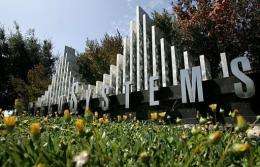Citing rights failings, firm divests Cisco holdings

A US investment management firm has divested of its holdings in Cisco, accusing the networking giant of failing to respond to human rights concerns, particularly in China, and lacking transparency.
Boston Common Asset Management cited Cisco's marketing of equipment to the Chinese Ministry of Public Security among the reasons for its decision to sell its stock in the San Jose, California-based company.
"Boston Common's decision to divest comes after years of campaigning Cisco for greater transparency and accountability on key human rights and business development concerns," Boston Common's Dawn Wolfe said in a statement.
"Politically and socially repressive policies related to speech and privacy has a chilling effect on users and violates universally recognized human rights," she said. "When pressed for details on how Cisco addresses these risks, they come up short."
Founded eight years ago, Boston Common pursues an investment strategy for its clients involving "rigorous analysis of financial, environmental, social, and governance factors."
Following last year's Gulf oil spill, Boston Common, which currently has $1.4 billion under management, divested of its holdings in BP.
As of September 30, Boston Common held some 167,000 shares of Cisco stock worth $3.6 million.
Boston Common also accused Cisco of "deceptive vote tallying" on a proxy item submitted at the company's 2010 annual shareholders meeting in November.
Boston Common's proposal said that Cisco, in 1998, "was selected as a key supplier for building China's nationwide IP backbone, which has been called 'the Great Firewall of China.'"
It said that a 2002 Cisco document publicly leaked in 2008 "made clear that Cisco engineers were aware of the Chinese government’s repressive censorship and surveillance agenda and may have regarded this as a business opportunity."
Boston Common sought shareholder approval for a motion calling on Cisco to publish a report listing "concrete steps the company could reasonably take to reduce the likelihood that its business practices might enable or encourage the violation of human rights."
Cisco recommended shareholders reject the proposal and said its "business practices are designed to and strive to promote, among other things, freedom of expression, privacy and other fundamental personal freedoms.
"With respect to Internet freedom, we have clearly stated our policies: Cisco does not customize, or develop specialized or unique filtering capabilities, in order to enable different regimes to block access to information; Cisco sells the same equipment worldwide," it said.
Cisco denied the charge it manipulated the proxy vote.
"Boston Common is inaccurate in its assessment regarding the vote tally of the shareholder sponsored proposals," a Cisco spokeswoman told AFP.
"Cisco disclosed the voting results for all proposals during the annual meeting using a consistent methodology based on the percentage of shares voted," she said
(c) 2011 AFP

















